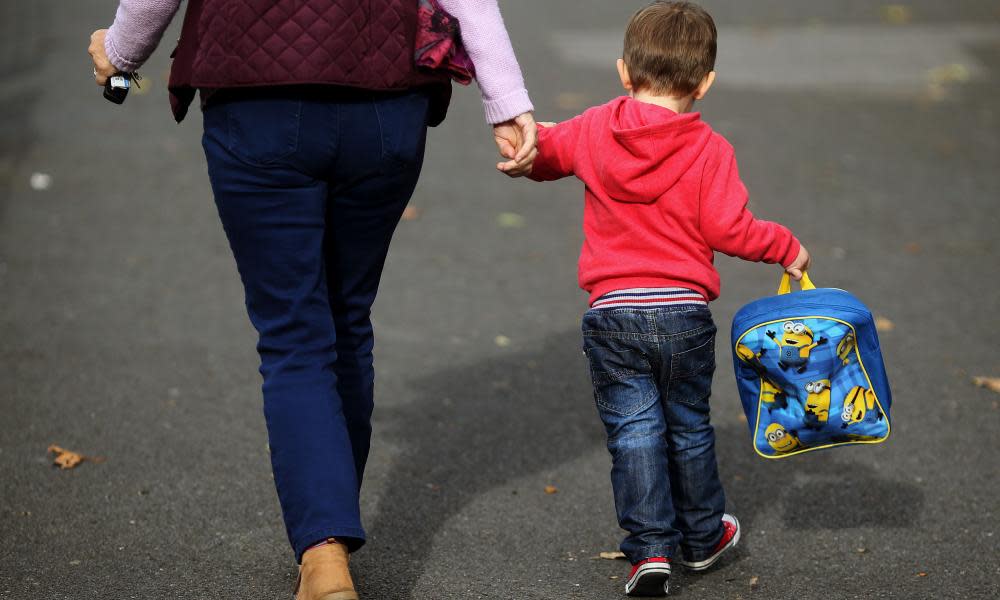Caring for a child when their parents can’t? The state takes you for a mug

Nobody likes being played. It’s especially galling when you know from the get-go that you’re being set up. But when you’re asked in grave tones by a social worker if you’ll take in your grandchild because their mum or dad – your son or daughter – isn’t providing a safe home, then, for most people, it’s a request that’s impossible to refuse. Especially if the alternative is foster care, or, most upsetting of all, adoption. No matter that you suspect your local authority is desperate to get this child off its hands on the cheap: whatever the deal on the table, the deep emotional connection you have with a child you’ve loved since it was a baby means you’ll most likely suck it up.
Welcome to the world of special guardians. These are relatives – or sometimes friends – appointed by the family court to care for a child when its parents can’t. But with it now costing over £230,000 to raise a child from birth to 18, there are few who could easily afford such an unplanned expense, especially in their later years.
So you might think that if you’re asked by children’s services to bring up someone else’s child, you’d be entitled to financial support from the state. You might reasonably expect a good deal of practical help, even some morale-boosting emotional support when times get tough, as they swiftly will if you have to give up your job to look after a toddler, or move house to gain an extra bedroom for siblings who’ve just arrived on your doorstep, or negotiate visits with a child’s distressed and angry parents who may not appreciate the fact that you’re now in charge.
But think again. For 95% of the 180,000 children being looked after by family or friends in England there’s no entitlement to any statutory support. And a report just published by the local government and social care ombudsman shows that local authorities are comprehensively failing special guardians and, crucially, the vulnerable children they care for.
For 95% of 180,000 children looked after by family or friends in England there’s no entitlement to statutory support
Last year 322 special guardians raised formal complaints about their treatment by their local authority: the ombudsman upheld 70% of these grievances, and found that social work teams were giving special guardians poor advice. Where financial support was offered, some councils had calculated it wrongly, arbitrarily cut the allowance, or failed to tell special guardians that this money was periodically up for review, rather than payable throughout the time the child was a minor.
Because the vast majority of children looked after by family and friends are entitled to nothing, these children have to date been a discretionary line on a fast depleting budget. Because there is no obligation to help them, quite simply councils don’t.
If you’re a special guardian who’s been having a few quid flung at you, count yourself lucky: it may not last for long. I interviewed the adult sister of a seven-year-old boy who’s been told her special guardian allowance of £160 per week is being cut to nothing this summer. She gave up her job to care for her brother and she’ll be looking after him for the next 11 years – but on what? A retired civil servant told me his local authority was cutting the allowance for looking after his two step-grandchildren by £6,500 a year, despite the boy having special educational needs. They have never received the equivalent of what a foster carer would get, so this family is already saving the state £35,000 a year in fostering fees. If this man and his wife hadn’t stepped in when crisis hit, these two children would undoubtedly be in vastly more expensive foster care, and very possibly split up from each other. But what were they going to do – say no?
Talk to any special guardian and they’ll say that they could not in good conscience have made a different decision, even knowing the immense financial and emotional toll it would take. But the ethics of this situation stink. Highly vulnerable children are being palmed off by the state with nothing like the support they’d be entitled to if a family member or a friend hadn’t made immense sacrifices to care for them.
But special guardians are ever so easy for local authorities to ignore. As they grow up they do far better than kids raised in long-term foster care. But it’s also clear that the people who look after them are often too beaten down to fight for a better deal than the one they’re told is all they’re going to get.
Though every kinship carer I’ve ever spoken to adores the children they look after, they know full well they’re being taken for mugs. But they’re not mugs. They’re the best of us. They deserve better than this cynical, exploitative deal where the state makes plain that its support for vulnerable children is an option, not a duty, and takes advantage of a family’s emotional bonds.
• Louise Tickle is a freelance journalist who writes on education, social affairs and family law

 Yahoo News
Yahoo News 
